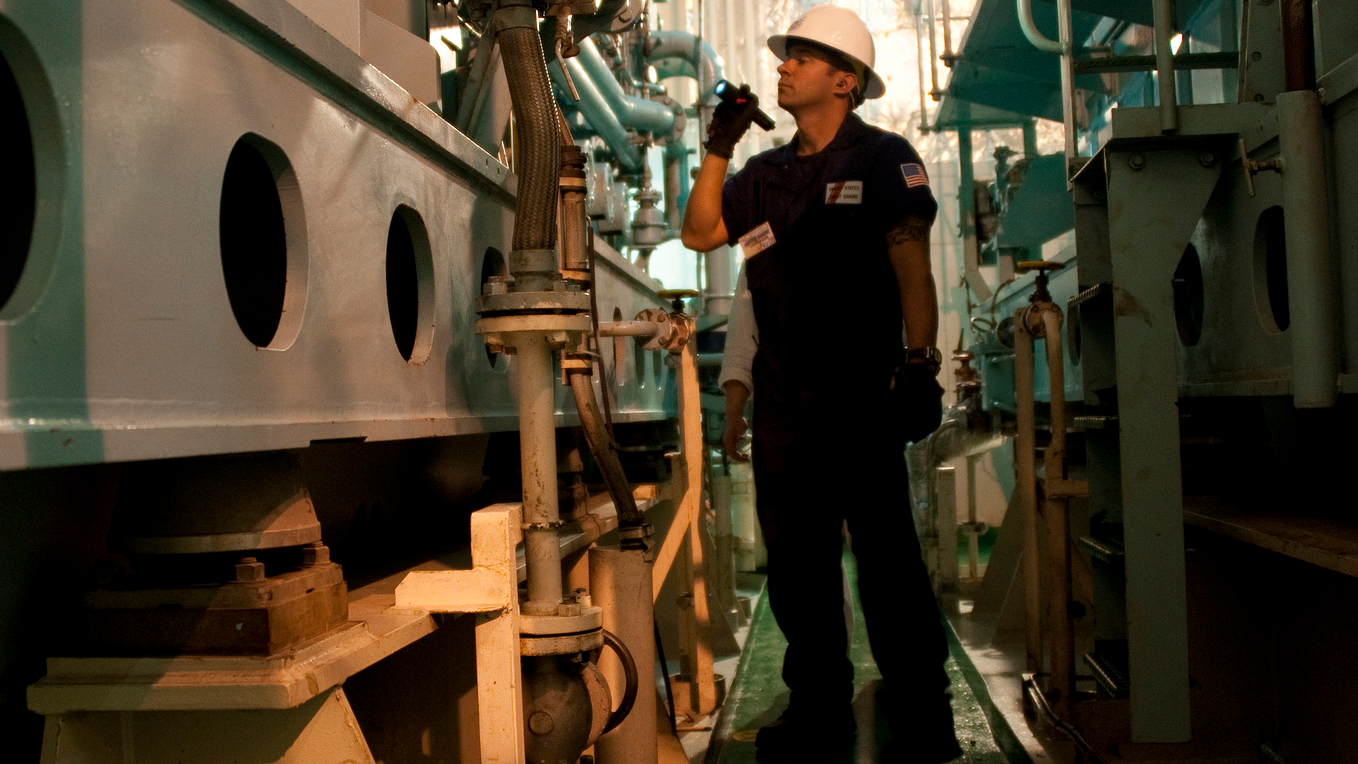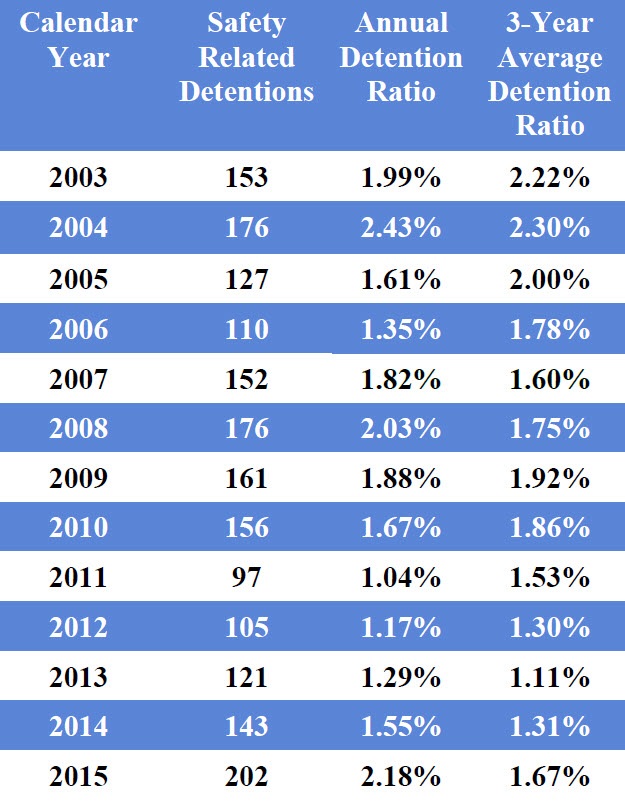
By MarEx 2016-06-03 19:15:56
The U.S. Coast Guard has released its Port State Control Annual Report noting the number of detentions rose from 143 in 2014 to 202 in 2015, the highest since 1998.
The three-year rolling average detention ratio, which was on a steady decline between 2011 and 2013, rose for the second straight year from 1.31 percent to 1.67 percent.
“There is no one statistic or factor that can account for these increases,” says Captain Kyle P. McAvoy, Office Chief for Commercial Vessel Compliance. “For instance, though bulk carriers continue to lead the detention count with almost 40 percent of all detentions, we found no correlation between the number of detentions and the age of the ship. Our data showed that 70 percent of all bulk carrier detentions were issued to vessels twelve years old or newer.
“Additionally, we were also surprised to find a jump in detentions on chemical tankships over the last year. We attribute these increases, in part, to our efforts in improving our initial port state control officer training programs, which focus on the port state control officer’s responsibility to recognize when deficiencies indicate a substandard condition.”
In 2015, a total of 8,925 individual vessels, from 81 different flag administrations, made 73,752 port calls to the United States. The Coast Guard conducted 9,265 SOLAS safety exams and 8,655 ISPS exams on these vessels.
The most common areas of detainable deficiencies were:
Fire Protection Systems
Port state control officers observed fixed water based fire-fighting systems that protect periodically-unattended machinery spaces secured either by closing supply valves or otherwise placing the system in a manual mode of operation. In addition, they observed required remotely-operated fuel shutoff valves fitted on storage, service or day tanks situated above the double bottom blocked in the open position in such a way these could not be closed from outside the space in the event of a fire.
Firefighting Detection
Though there have been a few detentions issued for the fixed gas detection system failing to alarm at the required levels, the most common item leading to a detention for firefighting detection involves required smoke detectors that are inoperative or disabled or a fire detection system that is inoperative.
Maintenance of Ship and Equipment
Various types of deficiencies that relate back to the vessel’s safety management system (SMS) have led to port state control officers concluding that the vessel had not substantially implemented its Safety Management System.
Rescue Boats
Rescue boats must be in a state of continuous readiness for launching within five minutes. However, port state control officers discovered a number of vessels’ rescue boats where the engine would not start, or once started the engine would cease running almost immediately. In addition, rescue boat launching arrangements were inoperative.
Oily Water Separators
In many instances, equipment was found not capable of producing a sample below 15ppm, a required oil content monitor or alarm was not functional or the vessel’s crew was unable to demonstrate proper operation of the system. Additionally, port state control officers discovered bypasses intended to discharge oily waste directly overboard.
SMS Challenges
Risk management and the effective application of a safety management system (SMS) continue to be a challenge to both the maritime industry and the U.S. Coast Guard, said Rear Admiral Paul F. Thomas, Assistant Commandant for Prevention Policy. “Since the adoption of the International Safety Management (ISM) Code, we have seen the SMS become the primary means for the mitigation of risk. As the design of vessel systems and associated regulations become more complex, we find a growing reliance on safety management systems.
“By design, an effective SMS clearly identifies the roles and responsibilities for all personnel throughout the vessel’s management system. All too often, well documented procedures have given a false sense of security, leading to complacency and resulting in the types of serious incidents that the SMS was designed to prevent.”
The report provides statistics related to the enforcement of regulations under the International Convention for the Safety of Life at Sea (SOLAS) the international Convention for the Prevention of Pollution from Ships (MARPOL) and the International Ship and Port Facility Security Code (ISPS).

The report is available here.